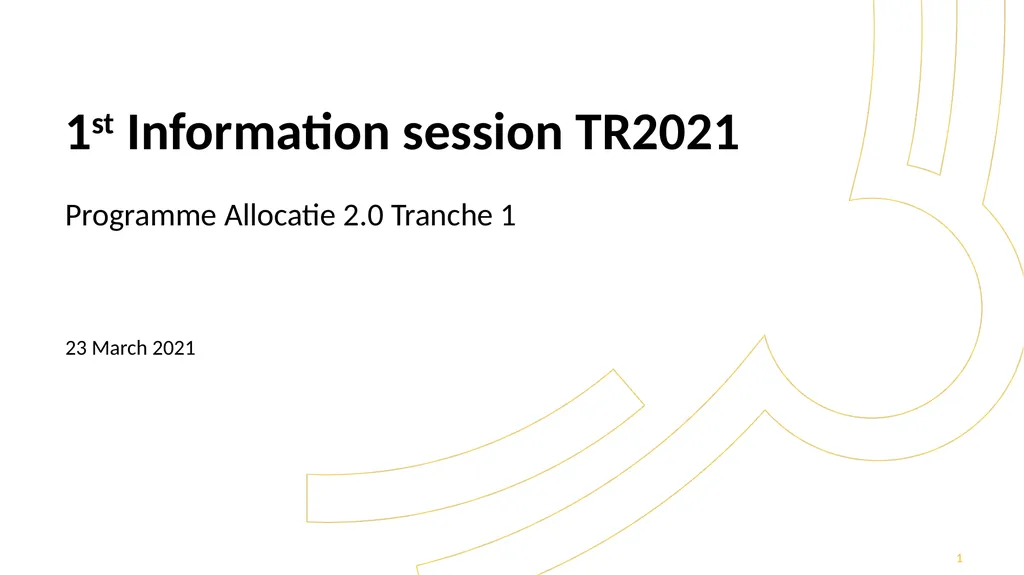
Author : phoebe-click | Published Date : 2025-06-16
Description: 1st Information session TR2021 Programme Allocatie 2.0 Tranche 1 23 March 2021 1 2 The original version of this presentation is in Dutch. The Dutch version will be leading if discrepancies are encountered after translation. Agenda 3 StatusDownload Presentation The PPT/PDF document "" is the property of its rightful owner. Permission is granted to download and print the materials on this website for personal, non-commercial use only, and to display it on your personal computer provided you do not modify the materials and that you retain all copyright notices contained in the materials. By downloading content from our website, you accept the terms of this agreement.
Here is the link to download the presentation.
"1st Information session TR2021 Programme Allocatie"The content belongs to its owner. You may download and print it for personal use, without modification, and keep all copyright notices. By downloading, you agree to these terms.













